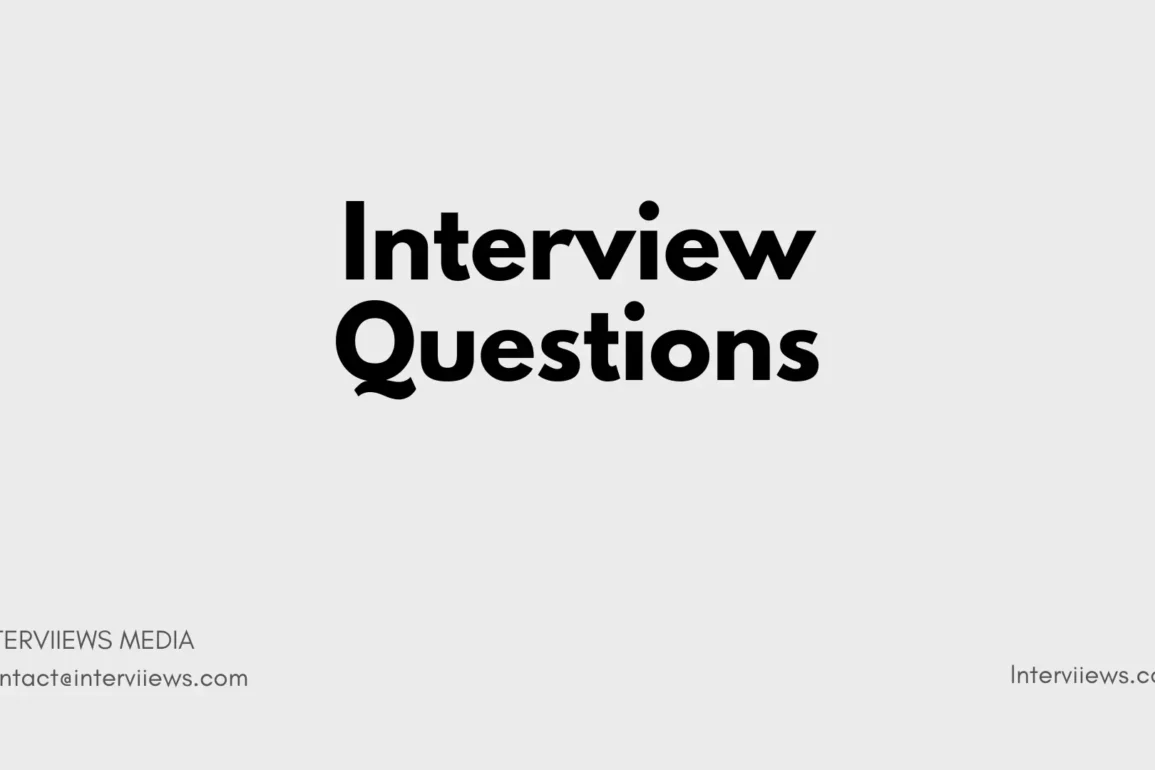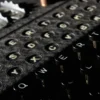Have you ever found yourself sitting in a job interview, heart racing, unsure of what kind of questions might come your way? You’re definitely not alone! In fact, a staggering 70% of job seekers say they feel unprepared for interviews. Understanding the various types of job interview questions can turn that anxiety into confidence! In this article, we’ll explore the different types of interview questions you may encounter, complete with examples and preparation tips to help you shine at your next interview!
Types of Job Interview Questions
So, if you’re getting ready for a job interview, you might be feeling a bit nervous. Trust me, I’ve been there! I remember sweating bullets just thinking about those tricky questions. There’s a lot more to prepare for than just dressing to impress. Understanding different types of interview questions can really make a difference, not just in how you respond, but also in easing that overwhelming anxiety.
Why is it important to know the types of questions? Well, you wouldn’t go into a battle without knowing your weapons, right? Each type of question you might face helps the interviewer look at different facets of your personality and skills. And knowing what to expect? That’s a game changer! It can totally lower your anxiety levels and turn that pre-interview panic into a sense of preparedness.
The Key Categories of Interview Questions
Alright, let’s break it down into some key categories of questions you’ll likely encounter:
- Behavioral Questions: These questions are all about examining how you acted in past situations. Like, “Can you tell me about a time when you faced a conflict at work?” Your answers can show what skills you have and how you handle yourself under pressure.
- Situational Questions: A bit different from behavioral questions, situational questions present hypothetical scenarios. Think along the lines of, “What would you do if you were faced with an angry customer?” It’s like a mental game where you explain how you’d tackle the situation.
- Technical or Role-Specific Questions: Depending on your industry, be ready for technical questions that assess your knowledge in your field. I remember being asked detailed questions about project management software in one interview. I came prepared and it showed!
- General Questions: These are the classic favorites like, “Tell me about yourself,” or “What are your strengths and weaknesses?” Simple, yet powerful! They give you a chance to showcase your personality.
- Closed-Ended Questions: A simple yes or no might suffice here. Questions like, “Do you have experience with Excel?” can cut to the chase but can feel a bit blunt if there’s not enough follow-up.
Honestly, handling these questions can be a double-edged sword. On one hand, it can feel super daunting. But on the other, these questions are your chance to shine! A solid understanding of what they are really takes away some of the mystery (and fear) out of the interview process. So, grab a notepad and jot down examples from your own experiences for each type. You’ll be glad you did!
One tip I learned was to always stay calm, especially when you hit a question you weren’t expecting. Taking a deep breath, pausing for a moment, and then crafting a response can really help. It shows you’re composed and thoughtful—even when the question feels like a curveball.
In sum, interviews are all about showcasing who you are while bringing the best parts of yourself to the forefront. You got this, friend! Prepare, breathe, and remember: every question is just a chance to share your unique story.
Behavioral Questions
Ah, behavioral interview questions – let me tell ya, they can be a bit sneaky. These are the kinds of questions that dive into your past experiences and behavior. The idea is pretty straightforward: interviewers want to know how you’ve handled real situations in the past as a way to predict how you might tackle similar ones in the future. It’s like trying to spot the superheroes of the office based on past missions.
- Definition: Questions about past experiences and behavior
- Examples:
Now, let’s get into some examples. Think of them as your practice drills for the big game.
- “Tell me about a time you faced a challenge at work.”
- “Describe a situation when you worked successfully in a team.”
- “Give me an example of a time you had a conflict with a team member.”
- “Tell me about a time you made a mistake at work.”
- “Describe an occasion when you had to manage your time to complete a task.”
- “How do you approach a project when you have a tight deadline?”
When I first started prepping for interviews, I can admit, I was a hot mess. I remember getting asked about a challenging situation, and I just froze. I ended up mumbling about how once I had too many college assignments and didn’t prioritize right. Not the greatest look, right? So, I learned that the key is to have these examples ready-to-roll in my back pocket.
One major tip I picked up along the way is using the STAR method. This technique saved my bacon.
Tips for Preparation: Use the STAR Method
If you’re scratching your head, wondering what STAR stands for, here it is: Situation, Task, Action, Result. Just like you’d set a good foundation for a house, this organizes your answer and gives it stability.
- Situation: Set the scene. What was happening?
- Task: What were you supposed to do?
- Action: What did you actually do? This is the meat of your answer.
- Result: And the grand finale! What happened? Did you save the day or learn a valuable lesson?
Let me share a quick story. There was this one time when my team had a critical client presentation, and, oh boy, we had schedule conflicts left and right! Using the STAR method, I laid out how I stepped up, organized collaboration despite the chaos, and – surprise, surprise – we nailed that presentation! It felt amazing.
However, a mistake I made initially was not being specific enough. Just saying “I worked with my team” won’t cut it. You want those juicy details, like who was involved and what the outcome was. You’d be surprised how many people fail to highlight their personal contributions in the answers!
All in all, thinking through these behavioral questions before the big day can bring some much-needed confidence. Just remember to tell your true stories, and don’t shy away from the tough ones. After all, it’s not just about what you did – it’s about how you grew from those experiences that’ll set you apart. Happy prepping!
Situational Questions
So, you’ve landed that job interview—way to go! Now, brace yourself for a fun little part of the process: situational interview questions. These babies are hypothetical questions, designed to assess your problem-solving skills and how you might handle different scenarios on the job. It’s like playing a game of “what would you do?” but in front of your potential future boss!
Examples of Situational Questions
Alright, let’s dive into some examples. Here are a couple that I’ve faced in interviews:
- “What would you do if a client was unhappy with your work?”
- “How would you handle a tight deadline while being short-staffed?”
Honestly, when I first encountered these, my mind went completely blank. I mean, who doesn’t get a little jitters when asked to think on the fly? But what you really want to remember here is that the interviewer is looking for your ability to think critically and your approach to conflict resolution.
Tips for Preparation
Now, how do you prepare for these kinds of questions? Well, here’s what I do. First off, it helps to think through some common scenarios that could pop up in your line of work.
Here are some ideas to think through:
- Imagine receiving feedback that a major project missed the mark. What would you do to remedy the situation?
- What if a teammate isn’t delivering their part of a project? How would you approach them?
- Consider this: your manager just dropped an unrealistic deadline on your desk—how are you gonna handle that?
I like to jot these down and even rehearse my responses. Sure, it might feel a little silly at first, but when I started doing this, I found myself much more relaxed going into interviews. It’s like, you visualize the awkwardness of figuring out these scenarios, so when they happen, it’s more like, “Oh, I’ve got this!”
It’s also a good idea to use the STAR method when structuring your responses. This stands for Situation, Task, Action, and Result. You describe the setting (Situation), what your role was (Task), the steps you took (Action), and the outcome (Result). It keeps your responses organized and comprehensive. When I first stumbled upon this technique, it felt like a lightbulb went off over my head!
And honestly, remember—it’s totally fine to pause and think about your answer during the interview. I had a moment where I just needed to gather my thoughts; the interviewer appreciated the fact that I didn’t rush my response. It’s about showing that you can handle these scenarios thoughtfully and not just throw out a cookie-cutter answer.
Can’t wait for you to ace that interview! You got this!
Competency Questions
Alright, let’s dive into competency questions. It’s one of those things that might make you sweat a bit before going into an interview.
So, what exactly are competency questions? Well, these questions are designed to evaluate your skills and qualifications by asking you to share specific examples from your past work experiences. They help employers figure out if you’ve got the right skills to perform the job you’re applying for.
Now, during my first big job interview—oh boy, was I nervous!—I was thrown a few competency questions like, “Give an example of a time when you demonstrated leadership.” I can vividly remember my mind going blank for what felt like an eternity. Turns out, they’re pretty common and can catch you off guard if you’re not prepared.
Examples
Here are some examples of competency questions that you might come across:
- “Tell me about a time you had to work as a team.”
- “How have you improved efficiency in your past roles?”
- “Describe a difficult situation you resolved at work.”
- “Have you ever had to learn a lot of information in a new role?”
These questions basically want you to recall moments when you’ve had to showcase specific abilities—like teamwork, problem-solving, or even leadership. When I got hit with something like, “Describe how you have positively contributed to a team,” I remember struggling to think beyond my usual job tasks. So, don’t be like me!
Tips for Preparation
Now, let’s talk prep. If you want to prepare effectively, here are some tips I’ve picked up over the years:
- Match Your Skills to the Job Description: Before you go in for the interview, skim through the job description. Take note of the key skills they are looking for. This can help you identify examples from your past that align with those skills. Made this mistake once—went in blind and totally flopped.
- Use the STAR Method: This method stands for Situation, Task, Action, and Result. Structure your answers using this format to ensure you cover all the essential points. It really helps in keeping your answers focused and concise.
- Practice, Practice, Practice: Get a friend or even a family member to throw some questions at you. It can feel super weird, but hearing the questions out loud makes a world of difference. Trust me, I once just practiced alone and messed up big time during the actual interview.
- Be Genuine: Don’t try to come off as a superhero in every answer. Share your real experiences, including the lessons you learned from challenges or even errors you made. Authenticity often shines through.
When it comes to answering competency questions, keep in mind that interviewers aren’t just looking for the successes; they often care about how you handled challenges. So really think about situations you faced and what you learned from each. You got this, don’t let them intimidate you!
Technical Questions
Alright, let’s dive into technical interview questions. These are the queries that target your specific field, like software development, data analysis, or even network engineering, to gauge your expertise and problem-solving abilities. They’re not just broad, “what is your favorite programming language?” type questions. Oh no. They require you to flex those critical thinking muscles and showcase your experiences!
- Definition: Technical interview questions are designed to evaluate your knowledge and proficiency in specific skills or methodologies related to a job. They help interviewers understand how you think and how you tackle problems unique to your field.
- Examples:
Some of the questions that I have encountered and heard from friends in the tech industry include:
- “Explain your process for debugging code.” This question can be a real doozy if you’re not prepared. I remember fumbling through an answer the first time I faced it. Debugging isn’t just about finding a bug; it’s about understanding the whole code flow and hypothesizing why that bug might exist. I usually break this down into analyzing the issue, replicating it, inspecting the relevant code, and running tests to ensure my fixes don’t introduce new issues.
- “How do you analyze data for trends?” Here, the interviewer wants to hear about the particular tools you use—like SQL, Excel, or maybe even Python libraries such as Pandas. I once narrated how I mapped out trends in sales data using Excel. I showed how I created pivot tables and visualized my findings through charts. That left a lasting impression!
Tips for Preparation
Okay, so how do you prepare for these technical interviews? I’ve got a few tips up my sleeve that I learned through my own trial and error:
- Review Industry Standards: Make sure you are familiar with the common tools and practices in your field. If you’re wearing the software developer hat, that means brushing up on frameworks, coding languages, or methodologies like Agile.
- Practice with Mock Interviews: This might feel cheesy at first, but getting a friend to throw technical questions your way can really help quell those nerves. Plus, the folks at places like Pramp or Interviewing.io give you a chance to practice live with strangers, which is super valuable.
- Stay Updated: Technologies evolve rapidly; it’s an absolute must to keep abreast of the latest trends and advancements. Subscribe to relevant blogs, check out webinars, or join community forums. I always recommend following tech leaders on LinkedIn as they often share insights.
- Compile Your Projects: When asked about your experience, it’s best to have a mental list of projects, be it academic or professional. I once got a bonus point for sharing how I implemented a machine learning algorithm for analyzing customer reviews—it was great icing on the cake during my interview!
Keep in mind, interviews can be nerve-wracking. Feeling like you are on the spot is inevitable! But with the right preparation and understanding of what to expect, you’ll walk into that interview room with confidence. Just remember, you’re showcasing your unique journey and problem-solving skills, and that’s something no one else can do quite like you!
Cultural Fit Questions
So, when it comes to interviews, have you ever heard the term “cultural fit”? It’s like the company wants to see if you’re a good match, not just in skills but in your values and work style, too.
Think of cultural fit interview questions as a deep dive into your personality. They’re looking to find out if your vibe aligns with the company’s environment. In my experience, understanding this can make or break an interview. Let me tell you a story.
A couple of years back, I was interviewing for a marketing role at a startup. I thought I nailed it, right? My resume was solid, and I had some cool projects to talk about. But then they hit me with this question: “What type of work environment do you thrive in?”
I froze! I rambled about loving a fast-paced environment because I did—like who doesn’t love a little adrenaline? But, what I didn’t consider was that they were a super collaborative team where brainstorming was key. They needed someone who thrived in a group setting. Oops! That answer was more about me, less about their company’s culture. Every detail counts!
Examples of Cultural Fit Questions
Here are a few more common cultural fit questions you might encounter:
-
- “How do you prioritize teamwork versus individual projects?”
- “Can you give an example of how you’ve contributed to a positive workplace culture in the past?”
- “What do you think about remote work versus in-office work?”
- “How would you describe your ideal manager or supervisor?”
It’s crucial to answer these with both conviction and clarity. Be specific in your examples!
Tips for Preparation
Now, when it comes to preparing for these questions, research is key. You gotta know the company culture before you even step in the room (or log into Zoom!).
Check out their website, social media, even Glassdoor. What are their values? How do they describe their workplace? This gives you a roadmap on how to align your responses. Tailor your answers to reflect their vibe. If they promote innovation and collaboration, talk about how you’ve loved brainstorming sessions in the past.
And for those moments when you’re waiting for an interview to start, jot down your own values. Ask yourself: “What do I want in a workplace?” This can help you navigate questions like “What are your expectations from your employer?” with ease.
One last tip: Practice with someone! I remember my buddy and I would run mock interviews, throwing each other curveballs. It totally lightened the anxiety and helped me nail those cultural fit questions when the time came.
Trust me, doing your homework and preparing your responses will boost your confidence and make you shine during those interviews. Now go get ’em!
Brainteaser Questions
Alright, let’s talk about brainteaser questions. These sneaky little nuggets are basically problem-solving questions that interviewers toss your way to measure your analytical thinking. But don’t let that intimidate you; they can actually be fun when you get the hang of them!
Definition
So, what is a brainteaser? Simply put, brainteaser questions are those tricky little gems that test how well you think on your feet. They often don’t have a single “right” answer, but instead show how you approach a problem using logic, creativity, and sometimes, math skills. Picture it like a puzzle that unlocks your analytical brain!
Examples
Now, let’s sprinkle in some examples to give you a clear picture of what we’re talking about:
- “How many golf balls can fit in a school bus?” This question makes you think about volume and dimensions. You’ll need to make some assumptions, like the size of a golf ball and the interior space of a bus.
- “Why are manhole covers round?” It sounds simple, but it leads you down the path of logic and design thinking. A round cover can’t fall through its hole, while any other shape could fall in awkwardly.
I remember when I first faced a brainteaser in an interview. My mind went blank staring at the question about golf balls and buses. I sat there awkwardly, sweating a little, but then I started picturing the bus… it was like a mini movie in my head! I estimated the size of the bus and my math skills kicked in. I got it wrong, but hey, at least I made them giggle! Score!
Tips for Preparation
Now, onto the good stuff—how to prep for these questions! Here are some tips that I’ve learned along the way:
- Focus on logical thinking: This cannot be understated. When you’re faced with a brainteaser, try to break down the problem logically. Draw it out if that helps you visualize better.
- Don’t be afraid to ask clarifying questions: Seriously, it’s okay to ask for more info. If something in the question doesn’t sit right with you, go ahead and ask for clarity. It shows you’re thinking critically.
Another mistake I made was overthinking it. I was so busy trying to show off my fancy math skills I forgot the basics! Dial it back a little. Remember, it’s more about your thought process than the exact answer. They want to see how you conquer the challenge, not just the end result.
In sum, brainteaser interview questions are wacky, quirky, and often quite amusing once you get the hang of them. Embrace the journey of preparing for them, and remember—it’s okay to be a bit goofy as you solve these puzzles! Happy prepping!
Unexpected Questions
Let’s be honest here. Interviews are nerve-wracking! The pressure of answering questions about your experience is already a lot to handle. But then, the hiring manager throws a curveball: “If you could be any fictional character, who would you be?” Suddenly, your heart races like you just downed five shots of espresso. Crazy, right? But that’s the beauty of unexpected interview questions!
These questions aren’t just for fun and games – they pack a punch! They’re designed to uncover parts of your personality and critical thinking skills that traditional questions can miss. When I went for an interview at a startup, the interviewer asked, “What’s your greatest weakness?” At that moment, I thought, “Seriously? What is this – a mind game?” But once I calmed down and thought about it, I realized they weren’t just trying to fish for something juicy; they genuinely wanted to see if I was self-aware enough to admit and address my shortcomings.
Examples of Unexpected Questions
- If you could be any fictional character, who would you be? – This question isn’t about who you might want to dress up as for Halloween. It’s about how you perceive traits like courage or kindness, and what kind of narrative you connect with.
- What’s your greatest weakness? – Classic! But here’s the trick: instead of saying something vague like “I’m too much of a perfectionist,” try to pinpoint a real weakness and then talk about how you’re working to improve it. This shows growth!
Strategies to Handle Them
So, how do we tackle these unexpected questions with grace? First off, stay calm. Easier said than done, I know! Deep breaths help. Take a moment to think before you blurt out your answer – it’s cool to pause. In one of my interviews, I asked to repeat the question simply to give myself time to process, and honestly, it helped! I realized that asking for clarity shows you’re thoughtful and not afraid to seek further information.
Next, think about how your past experiences relate to the question. Think of parallels. For example, when answering who you’d be from fiction, I chose Sherlock Holmes. Not only does it demonstrate my problem-solving skills, but it also shows a bit of personality! Highlight how you think creatively, and don’t shy away from your quirks. Employers often look for cultural fits, and your creativity could be just what they’re after.
And remember, honesty is key. If you’re caught off guard, don’t fake it. Say something like, “That’s a great question! I haven’t thought about it before.” Authenticity can leave a lasting impression, so be genuine in your responses, and it’ll resonate with the interviewers.
These unexpected questions can feel intimidating, but they’re actually a brilliant opportunity to showcase who you really are. Take a deep breath, approach each with an open mind, and you might just surprise yourself with your own answers!
Conclusion
Understanding the different types of job interview questions is crucial for your success as a job seeker. From behavioral to technical questions, being well-prepared can help boost your confidence and set you apart from other candidates. Remember to practice answering these questions and consider downloading our preparation checklist to help you along the way! The job of your dreams could be just an interview away!





